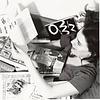Take a photo of a barcode or cover
The IT organization of where I work gave several managers the opportunity to be a part of a leadership workshop. This book was assigned as part of the curriculum.
For that purpose I found it opened a lot of discussion.
As reading for pleasure I found it to be a bit plodding and heavy handed. Due to the subject matter, I'm not sure that can be avoided.
For that purpose I found it opened a lot of discussion.
As reading for pleasure I found it to be a bit plodding and heavy handed. Due to the subject matter, I'm not sure that can be avoided.
This book made me feel for both sides of the conflict despite the whole slavery thing.
It gave actually character to even the Confederate side. In my history classes, this image of “oh yeah, the south was evil” tend to be promoted but god this book, the FEELS. I became so invested in these characters to the point I forgot they were real people. When i did remember, my mini-depression only deepened.
The diction took me out a bit. The author tend to use choppy phrases during action scenes or just some conversations in general to get that disorientated affect. It was cool but I felt it became a bit overdone through the novel.
The novel also felt a bit biased towards Chamberlain. I wish we got more in depth between Hancock and Armistead :(
It gave actually character to even the Confederate side. In my history classes, this image of “oh yeah, the south was evil” tend to be promoted but god this book, the FEELS. I became so invested in these characters to the point I forgot they were real people. When i did remember, my mini-depression only deepened.
The diction took me out a bit. The author tend to use choppy phrases during action scenes or just some conversations in general to get that disorientated affect. It was cool but I felt it became a bit overdone through the novel.
The novel also felt a bit biased towards Chamberlain. I wish we got more in depth between Hancock and Armistead :(
adventurous
tense
medium-paced
Well, I read this book the day before I went to Gettysburg, so my rave feelings about the book are partially mixed with the immediacy of seeing all the places described. It is very powerful to read about a battle and then walk in the footsteps of those soldiers less than 24 hours later.
challenging
dark
emotional
sad
tense
medium-paced
Graphic: War
Minor: Racism
I recently read The Killer Angels, one of the most widely acclaimed historical novels out there and, according to Joss Whedon, one of the inspirations for Firefly. Both facts make perfect sense to me. The book was superbly done--the characters fascinating, the history well-researched, and the battle of Gettysburg itself tragic and a tiny bit beautiful. The characters I empathized most with were Joshua Chamberlain (of the Union side) and James Longstreet (of the Confederate side), but by the end of the book, I was rooting for practically everyone. Almost every character was relatable in some way, and Shaara did an excellent job of conveying the humanity of each person, even the weak ones we would be tempted to condemn for their decisions or lack thereof. Making every character so human really hammered home one of his themes: this was a war between friends and brothers, and many of the leaders who had gone to Westpoint together or had served together in earlier battles now found themselves fighting each other. The reader feels a taste of the same ambivalence, reveling in the exultation of one side only to realize it means the despair of the other side, both equally beloved characters by that point. Very well done.
adventurous
challenging
emotional
informative
reflective
sad
tense
medium-paced
Plot or Character Driven:
Plot
Strong character development:
Yes
Loveable characters:
Yes
Diverse cast of characters:
No
Flaws of characters a main focus:
No
Amazing account of the Battle of Gettysburg. Not only did Shaara bring the battle to life so vividly, he also drew me into the stories of the men of two armies. Simply stunning.
Michael Shaara's The Killer Angels is a remarkable book indeed: It has been required reading for military schools from the US Army Officer Candidate School to the U.S. Military Academy at West Point and is only one of two novels recommended for Officer Professional Development. Why? For one thing -- detail, detail, detail. Battle maneuvers, decision-making, the pressures and fears involved. Tactics are discussed and charted, emotions carefully developed and expressed, and conflicts delicately and meaningfully explored. It is a historical exposition on how the epic battle at Gettysburg was fought, yet it is also a tender look at the affection, the conflict, the friendship and duty between people such as Lee, Longstreet, Armistead, Garnett, Tom and Joshua Chamberlain. It is rich with character and alive with history. Detailed description of maneuvers are not sacrificed for moving exploration of character.
The writing style is pure and beautiful genius -- so rambling and realistic. The reader is truly in there in the moment of history, which, ironically, doesn't feel like grand history when one is experiencing it (like what would happen in reality). We see Chamberlain learn of the name of the hill on which he fought only after the battle, afterwards when he realizes it is so significant. The battle scenes are true and utter perfection. Realism, deftness, the wash of scene and emotion coupled with individual images that strike in one's mind.
Thematically, Shaara does not easily conclude. There is something hopeful in the end, a beautiful picture indeed, but too many foundations of hope have been broken down in the story itself. The title embodies the conflict of humanity in Shaara's mind: Are we angels, with the "divine spark," or are we killers, animal and insignificant? Setting this philosophical dilemma in the Civil War is apt: a nation divided in identity, a humanity divided in what it identifies itself. Does Shaara support the war, or war in general? He merely shows the characters, what they thought and believed, and offers no at least easy conclusion. War is indeed pointless in many ways, but there are indeed things worth fighting for. But one doesn't picture "the Cause" after a massive bloodshed. It's only after reflection, as Chamberlain embodies in the end.
I enjoyed this book quite a bit. I was irked by the unresolved disillusionment displayed by Chamberlain and especially Longstreet. But this only spurs me to find the original documents of these men and discover what they really believed, if I can ever tell. After reading this, I feel that I would love to write something similar, a moving treatise on a great battle, a human picture of a textbook fact.
I am grateful I read this book, that I experienced this monumental story in its flowing motion, put another war classic under my belt, and got humanly involved once more in the Civil War. The inspiration of life illustrated in this book is something I will always love fiction for, historical fiction most of all.
The writing style is pure and beautiful genius -- so rambling and realistic. The reader is truly in there in the moment of history, which, ironically, doesn't feel like grand history when one is experiencing it (like what would happen in reality). We see Chamberlain learn of the name of the hill on which he fought only after the battle, afterwards when he realizes it is so significant. The battle scenes are true and utter perfection. Realism, deftness, the wash of scene and emotion coupled with individual images that strike in one's mind.
Thematically, Shaara does not easily conclude. There is something hopeful in the end, a beautiful picture indeed, but too many foundations of hope have been broken down in the story itself. The title embodies the conflict of humanity in Shaara's mind: Are we angels, with the "divine spark," or are we killers, animal and insignificant? Setting this philosophical dilemma in the Civil War is apt: a nation divided in identity, a humanity divided in what it identifies itself. Does Shaara support the war, or war in general? He merely shows the characters, what they thought and believed, and offers no at least easy conclusion. War is indeed pointless in many ways, but there are indeed things worth fighting for. But one doesn't picture "the Cause" after a massive bloodshed. It's only after reflection, as Chamberlain embodies in the end.
I enjoyed this book quite a bit. I was irked by the unresolved disillusionment displayed by Chamberlain and especially Longstreet. But this only spurs me to find the original documents of these men and discover what they really believed, if I can ever tell. After reading this, I feel that I would love to write something similar, a moving treatise on a great battle, a human picture of a textbook fact.
I am grateful I read this book, that I experienced this monumental story in its flowing motion, put another war classic under my belt, and got humanly involved once more in the Civil War. The inspiration of life illustrated in this book is something I will always love fiction for, historical fiction most of all.
Read my full review of the audiobook here: http://booksforears.com/2008/06/16/the-killer-angels-by-michael-shaara/




